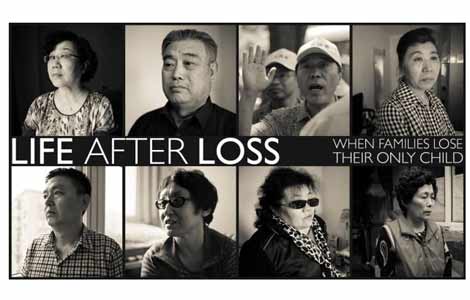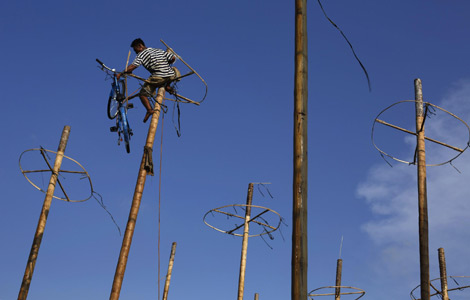Japan, US to revise defense co-op guidelines
Updated: 2013-10-03 17:36
(Xinhua)
|
|||||||||||
TOKYO - Japan and the United States on Thursday agreed to revise their bilateral defense cooperation guidelines by the end of 2014 in a move to cope with changing security environment, according to the two countries' defense and foreign chiefs.
The decision, which was the first time in 17 years, was made during the Japan-US "two-plus-two" summit held here Thursday between Japanese Foreign Minister Fumio Kishida and Defense Minister Itsunori Onodera and their US counterparts of John Kerry and Chuck Hagel.
The two countries also agreed to move part of US military personnel from Japan's Okinawa to Guam from the first half of the 2020s so as to ease burden of hosting bulk of US bases in Japan in the Japanese southernmost prefecture, the ministers told reporters after their meeting.
According to a joint statement released after the summit, the ministers ensured the Japan-US alliance's capacity to respond to an armed attack against Japan, as a core aspect of US-Japan defense cooperation.
They also agreed to expand the scope of cooperation, to reflect the global nature of the bilateral alliance, encompassing such areas as counter-terrorism, counter-piracy, peacekeeping, capacity building, humanitarian assistance and disaster relief, and equipment and technology enhancement, according to the statement.
The statement also said that the two countries will promote deeper security cooperation with other regional partners to advance shared objectives and values and will enhance alliance's mechanisms for consultation and coordination to make them more flexible, timely, and responsive and to enable seamless bilateral cooperation in all situations.
The chiefs also agreed to facilitate bilateral cooperation on cyber space and outer space and boost their joint intelligence, surveillance and reconnaissance activities.
Kishida said at the press meeting that security environment in the Asia-Pacific region is being increasingly severe and Japan and the United States have to effectively response to the changing situation by "realize a stronger alliance relationship" between the two countries.
US Secretary of State John Kerry, for his part, highlighted that the US-Japan alliance "has no question been the corner stone of peace, stability and prosperity across the Asia-Pacific."
US Secretary of Defense Chuck Hagel also announced that the US Navy will make its first deployment of P-8 maritime patrol aircraft outside the United States later this year in Japan to boost the alliance's capability of intelligence, surveillance and reconnaissance.
Related Stories
Japan, US hold TPP-related bilateral talks 2013-08-07 16:35
Call for revising Japan-US military agreement 2013-06-19 10:51
Japan, US top diplomats hold talks on ties 2013-02-04 11:23
Japan, US begin talks on revising defense guidelines 2013-01-18 08:05
Japan,US urged not to harm 3rd-party interests 2012-11-09 19:51
Today's Top News
A community of common destiny with ASEAN
Shutdown still in deadlock after talks
UNSC urges boost to Syria aid access
Russian embassy in Tripoli attacked
Iran has proposal for nuclear deal
Xi opens up on hopes for football World Cup glory
Trending news across China
President Xi meets Indonesian counterpart on ties
Hot Topics
Lunar probe , China growth forecasts, Emission rules get tougher, China seen through 'colored lens', International board,
Editor's Picks

|

|

|

|

|

|





